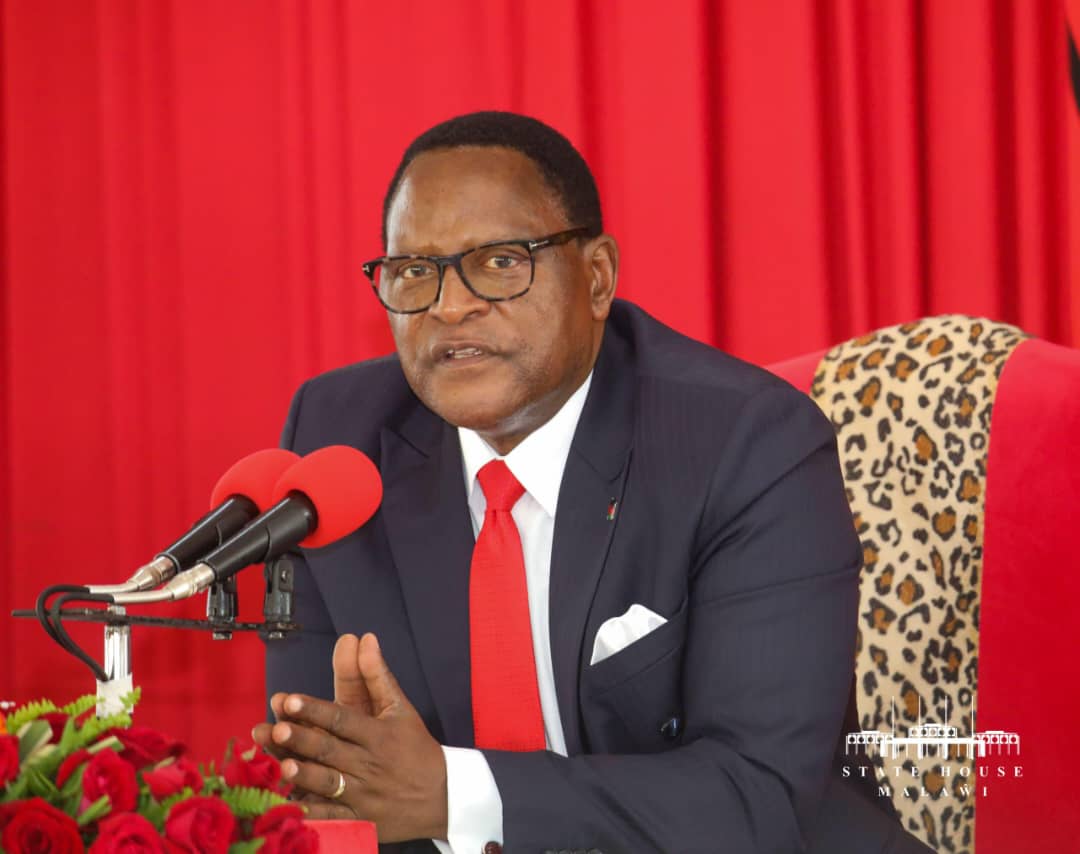By Burnett Munthali
A symbolic yet powerful political gesture has taken root in northern Malawi: the removal of all Malawi Congress Party (MCP) flags and images of President Lazarus Chakwera from public spaces.
This act is not a random one. It is a calculated and emotionally charged expression of discontent—a message sent loud and clear from the people of the North, particularly Mzuzu, that their patience with the current administration has worn thin.
The statement “Panopa mbendela zose za MCP pamozi ndi Chakwera zachosedwa” (All MCP flags along with images of Chakwera have been taken down) underscores the seriousness of this regional disaffection.
Political symbols are more than just fabric and photographs—they represent loyalty, presence, and dominance in any given territory. So, their removal signals a political divorce of sorts.
The second line of the viral message—“Kumpoto sakufunaso kuona nkhope ya Chakwera mu nseu” (The North no longer wants to see Chakwera’s face on the streets)—drives home the public’s disenchantment with the president.
It is not only symbolic but deeply emotional. It reflects the breaking of a psychological contract between the governed and those in power.
The North, historically marginalized but politically strategic, has long been vocal about its expectations from leaders. It is now turning its voice into action.
The phrase “Chakwera aziona mu nthawi ino ya chisankho” (Chakwera will face consequences in this election season) is both a threat and a promise. It suggests that the electoral terrain will not be smooth for the president and his party come the 2025 general elections.
There is a deep-rooted feeling that the North has been used politically but forgotten administratively.
The playful but pointed ending—“Mzuzu simasunga makape” (Mzuzu does not keep fools)—adds a layer of scorn and finality to the public sentiment.
It communicates that Mzuzu, often seen as politically mature and outspoken, is unwilling to accommodate leadership that it considers out of touch, corrupt, or ineffective.
This slogan, though laced with humor and emojis, encapsulates a revolutionary sentiment. It points to a population that has reached its tipping point.
So what lies beneath this public outrage?
Many in the Northern Region feel betrayed by the Tonse Alliance, especially by President Chakwera, whom they believe has sidelined them after securing victory with their help in 2020.
Promises of equal development, job creation, and fair representation have not materialized. Instead, there are allegations of nepotism, regionalism, and neglect.
Mzuzu, a city known for its sharp political awareness, has become the epicenter of what could be described as a political awakening.
While MCP might argue that such events are isolated or manipulated, ignoring this wave of rebellion would be a grave miscalculation.
In fact, the public removal of political symbols without fear suggests that the party’s grip on the region has become fragile—perhaps even nonexistent.
This should deeply worry the MCP’s campaign machinery, which cannot afford to lose a region that was once a bedrock of support.
Moreover, with social media amplifying every act of resistance, the party’s image nationally may suffer even more.
Citizens in other parts of the country, especially youth who are increasingly frustrated by joblessness and corruption, may see Mzuzu as a model of active resistance.
The real question now is whether the MCP leadership—President Chakwera in particular—will acknowledge this rejection and respond meaningfully.
Will they conduct genuine engagement with the North, or will they resort to political spin and denial?
Mzuzu has sent its message. It has declared that symbols without service mean nothing. Loyalty without leadership is dead.
In the months leading up to the September 2025 general election, how the MCP addresses this unrest will define not only its electoral fortunes but also its legacy.
If ignored, this rebellion could snowball into a nationwide movement of political reawakening. If addressed with humility and sincerity, there may yet be room for reconciliation.
But for now, the streets of Mzuzu are bare of Chakwera’s face—and full of silent protest.




